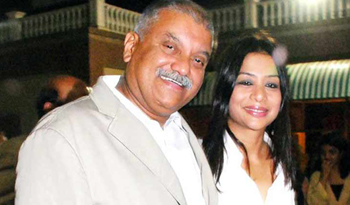Mumbai, Aug 31: Indrani Mukerjea, her former husband Sanjeev Khanna and her driver Shyam Rai will be produced before a local court today where the police probing the sensational Sheena Bora murder case are likely to seek extension of their police custody.
Police will slap fresh charges of attempt to murder against Indrani, Sanjeev and the driver for allegedly trying to kill Mikhail Bora, officials in the investigating team said on condition of anonymity.
 Guwahati-based Mikhail had earlier told police that Indrani tried to kill him thrice.
Guwahati-based Mikhail had earlier told police that Indrani tried to kill him thrice.
Mikhail had also said that just hours before Indrani and Sanjeev met Sheena on April 24, 2012 and took her for what would be the last drive of her life, Indrani allegedly drugged him but he managed to escape from the spot and averted becoming the second murder victim.
The murder case took another turn yesterday when police seized a suitcase from the residential premises of Indrani and Peter Mukerjea in Mumbai's Worli area, apparently lending credence to Mikhail's claim about his mother's plan to kill him.
Police yesterday took Sanjeev and Indrani's driver Shyam Rai to the forest in Raigad district where Sheena's body was allegedly dumped, to 'recreate' the crime scene.
During sustained interrogation here on Saturday, Indrani and Sanjeev had blamed each other for the crime.
Indrani accused Khanna of committing the murder and dragging her into the crime. However, he said he only assisted Indrani as she had promised to help him financially.





Comments
Add new comment